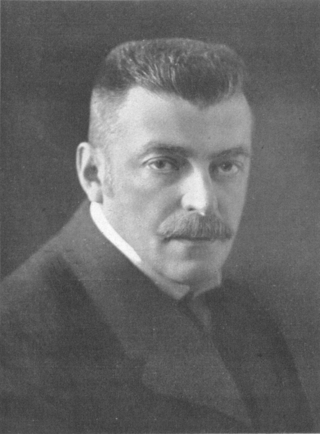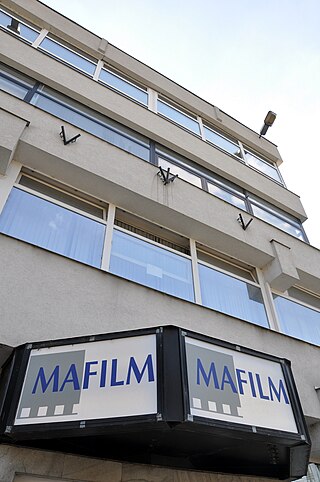
Miklós Jancsó was a Hungarian film director and screenwriter.

Hungary competed at the 1968 Summer Olympics in Mexico City, Mexico. 167 competitors, 135 men and 32 women, took part in 116 events in 15 sports.

Hungary has had a notable cinema industry since the beginning of the 20th century, including Hungarians who affected the world of motion pictures both within and beyond the country's borders. The former could be characterized by directors István Szabó, Béla Tarr, or Miklós Jancsó; the latter by William Fox and Adolph Zukor, the founders of Fox Studios and Paramount Pictures respectively, or Alexander Korda, who played a leading role in the early period of British cinema. Examples of successful Hungarian films include Merry-go-round, Mephisto, Werckmeister Harmonies and Kontroll.

Love is a 1971 Hungarian drama film directed by Károly Makk. Based on two short stories by Tibor Déry, Szerelem (1956) and Két asszony (1962), it stars Lili Darvas and Mari Törőcsik. The film was selected as the Hungarian entry for the Best Foreign Language Film at the 44th Academy Awards, but was not accepted as a nominee.

The Round-Up is a 1966 Hungarian film directed by Miklós Jancsó. Well received in its home country, it was Jancsó's first film to receive international acclaim.

The Academy of Drama and Film in Budapest is an educational institution founded in 1865 in Budapest, Hungary. It became a university in 2000 and the name was changed to University of Theatre and Film Arts.
Yvette Biro is a Hungarian-American essayist, screenwriterand Professor Emeritus at New York University Graduate Film School (NYU).

Merry-Go-Round is a 1956 Hungarian drama film directed by Zoltán Fábri, based on the short story Kútban by Imre Sarkadi. It was in competition at the 1956 Cannes Film Festival. It was later selected to be screened in the Cannes Classics section of the 2017 Cannes Film Festival. The film was chosen to be part both of Budapest Twelve, a list of Hungarian films considered the best in 1968 and its follow-up, the New Budapest Twelve in 2000.
Budapest Tales is a 1976 Hungarian drama film directed by István Szabó. It was entered into the 1977 Cannes Film Festival.

János Görbe born as Görbe János was a prominent Hungarian actor of film and theater. He was the father of actress Nóra Görbe, star of the popular 80's TV series, "Linda".

István Bárczy was a Hungarian politician and jurist, who was minister of justice between 1919 and 1920. He was the mayor of Budapest between 1906 and 1918 and later lord mayor of Budapest. He was a member of the diet of Hungary from 1920 to 1931.
The Széchenyi Academy of Literature and Arts was created in 1992 as an academy associated yet independent from the Hungarian Academy of Sciences. It is intended to be the national academy of artists and writers, who could be elected to the HAS until the 1949 reforms. The president is Károly Makk, film director. Earlier it was László Dobszay.
Father is a 1966 Hungarian drama film written and directed by István Szabó. The film is a coming of age story. The main character copes with the childhood loss of his father against the backdrop of the Hungarian Revolution of 1956 and memories of the earlier dictatorship of the Arrow Cross Party modelled on the German Nazi Party.

Mafilm was established in 1948. It has been the largest and most significant film studio in Hungary and a strategic base for the Hungarian film industry. Mafilm's history has lived days of glory, just as it has survived severe deaths. The roots of its birth go back to Kolozsvár, and his ancestors included Europe's third-largest silent film factory. Ever since Korda Sándor founded the predecessor of Mafilm, film production has been going on here without stopping. The importance of the place is also enhanced by the fact that there are almost no Hungarian filmmakers who have not learned the basics of film profession here. Mafilm's history with its predecessors covers more than 100 years of the history of Hungarian film history.

Professor Hannibal is a 1956 Hungarian drama film directed by Zoltán Fábri and starring Ernő Szabó, Zoltán Greguss and Manyi Kiss. The film is based on a novel by Ferenc Móra set in Budapest during the Interwar period. When a Latin teacher publishes an essay on the Carthaginian General Hannibal, he is quickly hailed as a celebrity genius, but in reality has become an unwitting pawn of far-right politicians. The film was chosen to be part both of Budapest Twelve, a list of Hungarian films considered the best in 1968 and its follow-up, the New Budapest Twelve in 2000.
Silence and Cry is a 1968 Hungarian drama film directed by Miklós Jancsó.
The Corporal and the Others is a 1965 Hungarian comedy film directed by Márton Keleti. The film was chosen to be part of the Budapest Twelve, a list of Hungarian films considered the best in 1968.










